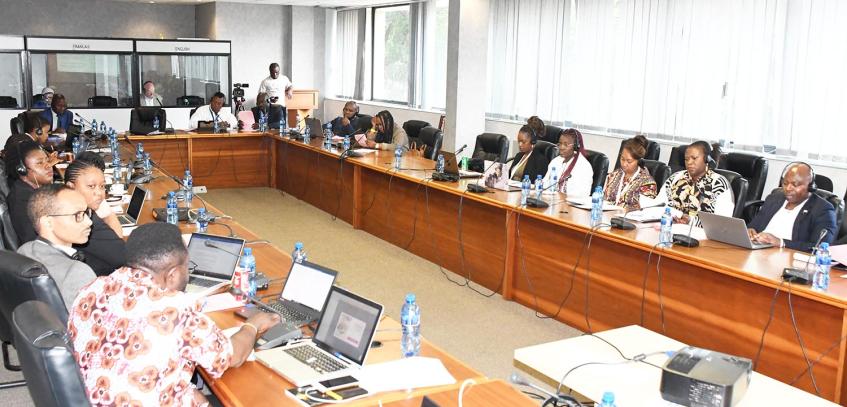Faced with a crisis in the overall situation of food security and nutrition (FSN) in Africa, the Pan-African Parliament (PAP) engaged various development partners to craft a model law in order to position the issue of FSN at the highest level of the political and legislative agendas in order to achieve the developmental objectives of Africa.
The meeting to mull over the draft Model Law by the PAP Committee on Rural Economy, Agriculture, Natural Resources and Environment; the Food and Agriculture Organization (FAO), the World Food Programme (WFP) and various stakeholders, took place on the sidelines of the First Ordinary Session of the Sixth Parliament in Midrand, South Africa.
The FSN Model Law will be tabled for consideration before the plenary in the current session.
In hailing the Model law on FSN, Rapporteur of the Committee on Rural Economy, Hon Assane Marou Koubo noted that the Model law has come at a pertinent time as it echoes the aspirations of the African Union (AU) 2022 theme “Building resilience in nutrition on the African continent: Accelerate the human capital, social and economic development.”
“Food security is one of the concerns of the AU and the tabling of this Model Law on FSN could not have come at a better time. When we consider issues to do with FSN, Africa continues to lag behind global trends hence this guideline for the AU Member States to aid them to realize the right to adequate food for citizens,” said Hon Assane Marou Koubo.
Approximately one out of four people in Sub-Saharan Africa and one out of five on the continent are estimated to be undernourished. The Model Law, therefore, prioritizes the eradication of malnutrition and all forms of hunger on the continent by addressing structural challenges to achieving FSN through a human rights-based approach and strengthening national capacities to create enabling legal and institutional environments for improved FSN.
Dr. Dia Sanou, Nutrition Officer with FAO noted:
“This Model Law is all about how we can leverage the current situation as the African continent is off track in meeting the set targets of Agenda 2063. Climate change, conflict in Africa, low agricultural productivity, and more recently the Russian-Ukraine war, have all had a great impact on FSN. As a result of these factors, FAO has been actively engaging on FSN with the PAP bringing this final result of a model law that will be an important tool to ensure FSN in Africa.”
The FSN Model Law will provide guidance for AU Member States in the development of primary and secondary legislation on FSN and the Right to Food.
-Ends-








